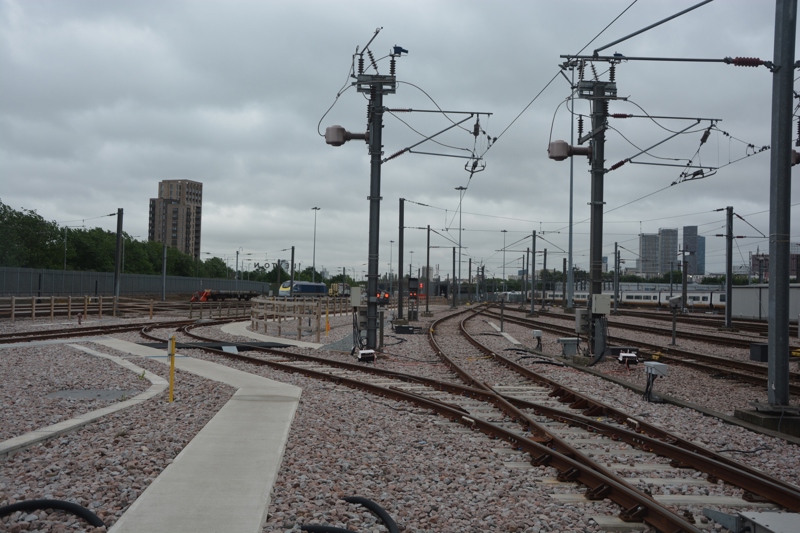
The announcement that the Office of Rail and Road (ORR) is due to decide by October 31 if a new operator can join Eurostar at Temple Mills International Depot (TMI) has also come with the publication of responses to the Ipex capacity study.

The announcement that the Office of Rail and Road (ORR) is due to decide by October 31 if a new operator can join Eurostar at Temple Mills International Depot (TMI) has also come with the publication of responses to the Ipex capacity study.
The ORR-commissioned report was published in March, with stakeholders given four weeks to submit representations in response to the findings.
These have now been published. Here are the key points of what operators have said:
Eurostar
By far the longest response, Eurostar said spare capacity is “likely to be distributed as white space across several roads of varying maintenance capabilities and, therefore, to be less operationally accessible”. It also said that mixing heavy and light maintenance on road one of the shed would restrict heavy maintenance capacity at TMI.
The operator said it “believes that options exist for expansion at alternative locations in Kent and East London and that these should be examined”, saying it doesn’t believe that whatever space is freed up at TMI will be enough for the needs of Eurostar’s future fleet (yet to be ordered) or those of its potential rivals.
Eurostar also claims the Ipex report does not present an explanation about latent shed capacity being available immediately, and says the assessment of moving non-maintenance work outside the shed to free up space is “not robust for several reasons, saying this already happens and more additional moves “could consume a significant amount of the time claimed to be freed up through the moving of non-maintenance activities to external roads”.
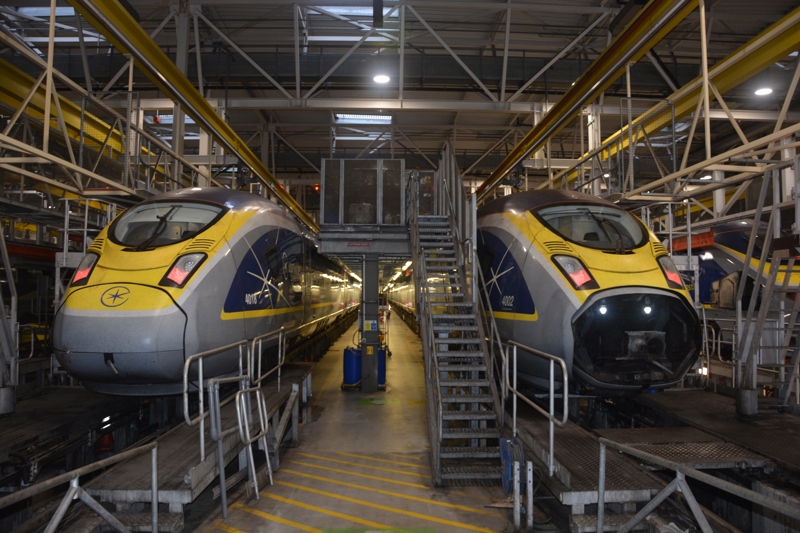
Eurostar has been critical of the application process throughout, and says it was “never designed for international services” or “to support five different competing applications/usages”. It also says the process is becoming costly and using up resources.
“If ORR drives through to a determination of access, then, based on the findings in this report, the most that can be offered is a partial award of access for one operator out of five. This cannot be expected to deliver a successful service for that operator and, at the same time, may well prejudice the financing prospects for other applicants seeking access,” Eurostar said.
Evolyn
Evolyn has said coordination and procedures at TMI should be overseen by a neutral depot manager.
In its letter, Evolyn said that once TMI becomes a multi-operator depot the “manager should be a neutral third party who, in order to be fully independent, must not be any of the operators” and each operator “should manage the movements and activities of their trains within the depot independently, and pay the corresponding access chargers per train”.
It would also like to examine the possibility of amending staff shifts “in order to adept the future resources to the actual maintenance activities, particularly in the observed ‘bottlenecks’”.
Gemini Trains
Gemini has said the capacity it seeks can be accommodated “without investment in changes to current operational practices”.
It also says it’s “reasonable to assume and widely accepted that a 200m train (Based on the standard European products) would be the basis of future operation”, so the capacity assessment “should also consider that 200m-length trains may use the facility”.
Gemini also said the Ipex study “does not address directly the impact on capacity that can be achieved through efficient operations at the site”, saying effective planning is needed to avoid capacity being “frustrated”.
Trenitalia France
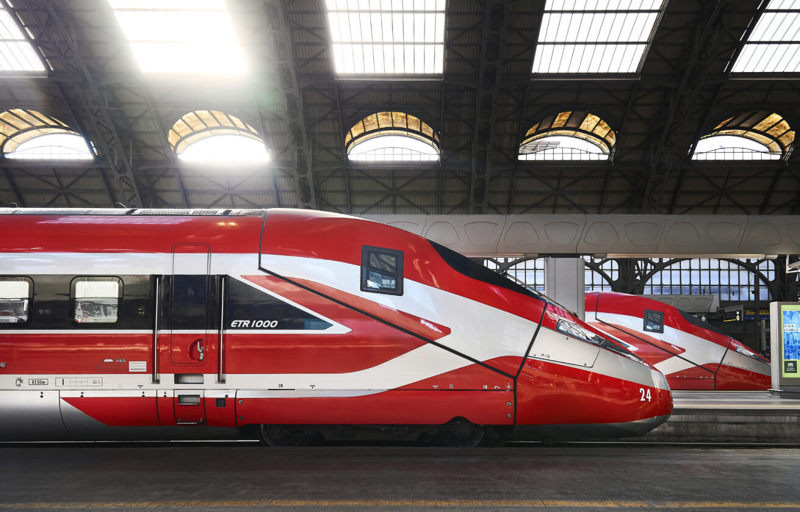
The FS Italiane Group-owned operator has said capacity changes will “not be sufficient to accommodate any future increase in services”, adding: “We strongly recommend investing in the expansion of the depot’s capacity to ensure long-term sustainability.”
Virgin
Virgin noted that the report does not reflect the prospect of using 200m trains, describing this omission as a “shortcoming” as they will “allow greater flexibility and make more efficient use of capacity”.
It also said the planned 87 arrivals and departures during the study’s observation period “were not completed and that over 24% fewer movements (66)” were noted. Virgin also analysed other movements using the Realtime Trains working timetable from April 1-7 that showed 55 movements, along with 47 actual movements between April 15-21.
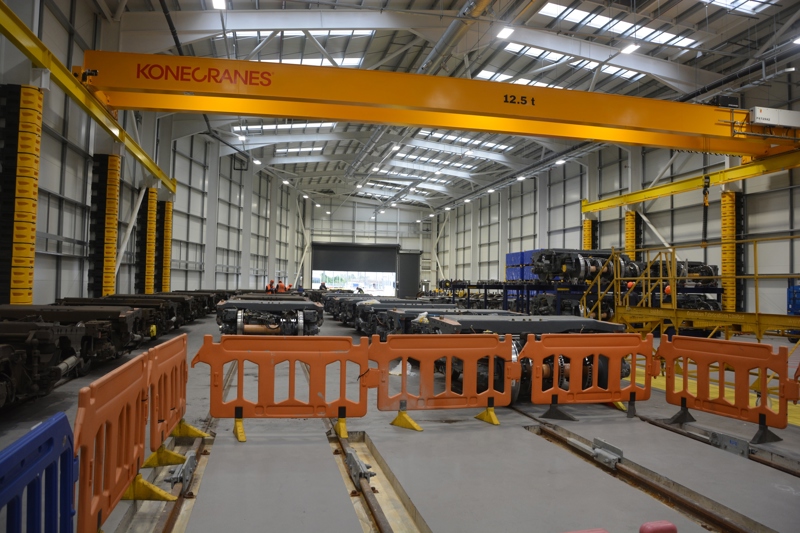
Virgin therefore wants ORR to investigate signalling data to “establish whether the observation period was a typical experience”.
Virgin said its Section 17 application seeks a maximum of three roads for all maintenance requirements and predicts its fleet could “only need four shed roads for maintenance, including any heavy maintenance requirements”.
Other responses
The Department for Transport said it supports a “thriving and competitive international rail passenger service” and “welcomes the prospect of new entrants in future”.
However, it said the report showed “major capacity constraints at TMI with limited space available to support the growth ambitions of the international rail market”, and commented that an average of 1.6 maintenance shed roads being available on average as “insufficient to support the demands of the market and would likely not meet the full needs of any single operator”.
The DfT also said it was engaging with stakeholders to explore potential options to alleviate capacity issues at maintenance depots to help support long-term growth.
In its submissions, Eurotunnel said there was “now a formal requirement to initiate a capacity development process to satisfy forecast demand by all operators”, nothing that the Ipex findings can only open the way for medium-term growth.
Login to continue reading
Or register with RAIL to keep up-to-date with the latest news, insight and opinion.

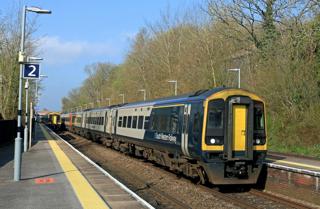
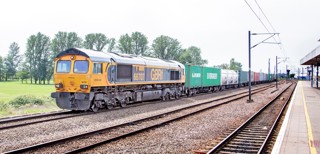
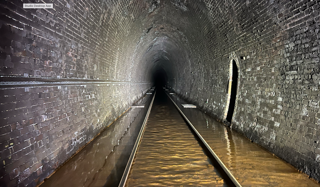













Login to comment
Comments
No comments have been made yet.